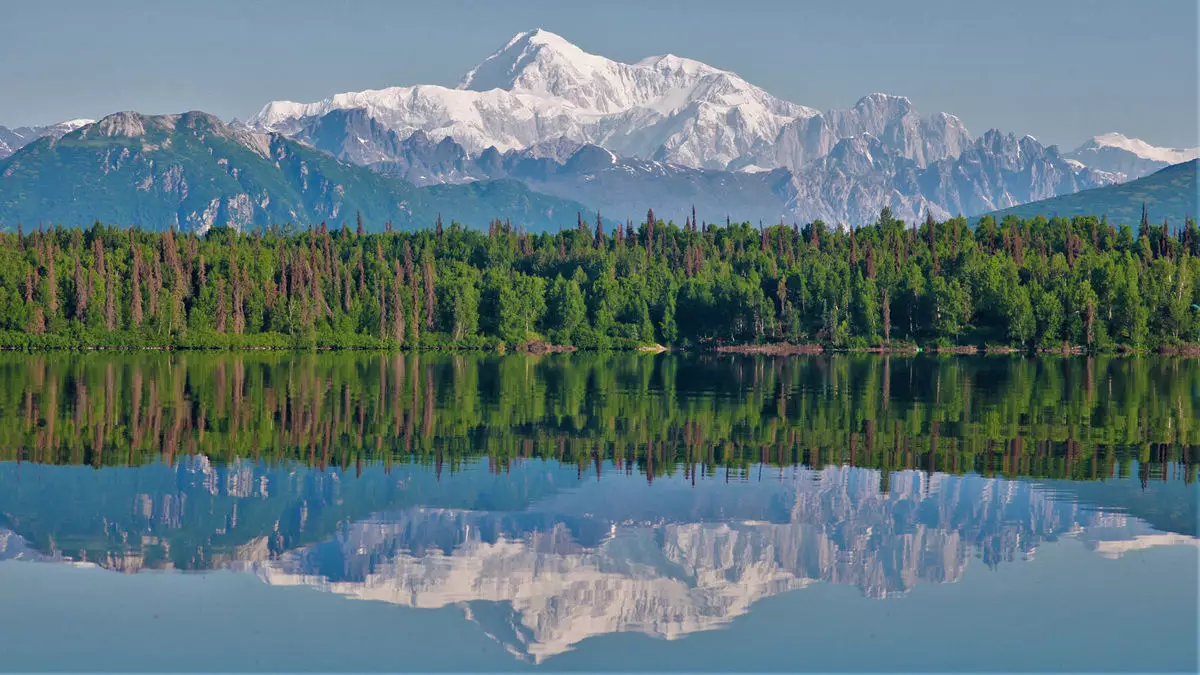The peak commonly known as Denali represents more than just the tallest mountain in North America; it embodies a longstanding battle over cultural identity and historical acknowledgment. A recent push from the Trump administration to revert the mountain’s name back to Mount McKinley has reignited a contentious debate that emphasizes the complex relationship between Indigenous rights, political influence, and tourism economics in Alaska. The friction arising from this name dispute raises critical questions about respect for cultural heritage and the true meaning behind place names.
The journey of Denali’s name is steeped in history, with significant shifts reflecting broader sociopolitical currents. Originally called Denali, the name was used for centuries by the Koyukon Athabascan people, signifying “the high one.” However, in 1917, in a decision that seemed to prioritize external recognition over local significance, the mountain was renamed Mount McKinley in honor of President William McKinley, an Ohioan who never set foot in Alaska. This decision ignored Indigenous heritage and prioritized a narrative of American exceptionalism that excluded Indigenous voices.
In 2015, the Obama administration decided to restore the name Denali, addressing decades of calls from Indigenous groups for the acknowledgment of their heritage. This change was widely celebrated by many within Alaska and the Indigenous communities who view Denali as a symbol of their cultural identity. As a result, the mountain’s name operates at the crossroads of cultural respect and political acknowledgment, raising crucial questions about whose narratives are prioritized in public discourse.
The response from Indigenous representatives and local tourism companies to the Trump administration’s recent order has been resolute. Jordan Sanford, president of Doyon Tourism, articulated a powerful sentiment when he stated that Denali “reflects the reverence and respect Indigenous people have for the land.” This statement underscores the idea that names carry weight beyond mere labels; they encapsulate histories, identities, and the spirituality of the people who have lived in harmony with the land for generations.
Tourism companies have rallied around the name Denali, recognizing that their business operates not only on natural beauty but also on the cultural narratives that surround it. For instance, Kantishna Roadhouse and Camp Denali have publicly affirmed their commitment to using the name Denali, demonstrating their alignment with local cultural identity over transient political directives. This collective defiance illustrates a broader resistance to attempts at erasing Indigenous identities through renaming.
The naming controversy extends beyond mere semantics; it captures the essence of Alaskan identity itself. Alaskans, particularly Indigenous communities, feel a personal connection to Denali, making it a symbol of pride and resilience. In this complex landscape, what might seem like a simple name change can symbolize a regression in societal progress regarding Indigenous recognition and rights.
Moreover, the Alaska House of Representatives’ resolution, urging the Trump administration to maintain the name Denali, indicates a collective stance rooted in local pride and ethical responsibility. Such support reflects a desire to promote the historical and cultural narratives intrinsic to Alaska, representing a fight to reclaim agency over local stories and truths marginalized for decades.
Ultimately, the debate over naming Denali highlights an enduring struggle between Indigenous communities and political forces that seek to impose external narratives. As the clash over the peak’s name continues, it serves as a reminder of the importance of honoring cultural identities and recognizing histories that have long been overlooked. By embracing Denali as its traditional name, Alaskans send a message that their commitment to honoring Indigenous legacies will not be silenced by political whims. This mountain, much more than just a geographical feature, stands as a testament to Indigenous culture, resilience, and the rich tapestry of stories that form the identity of Alaska.

